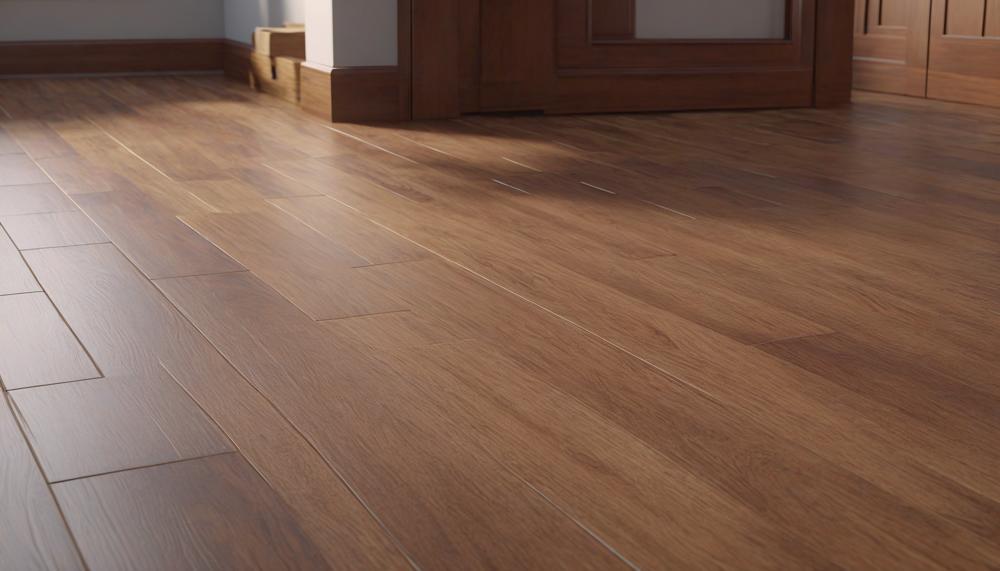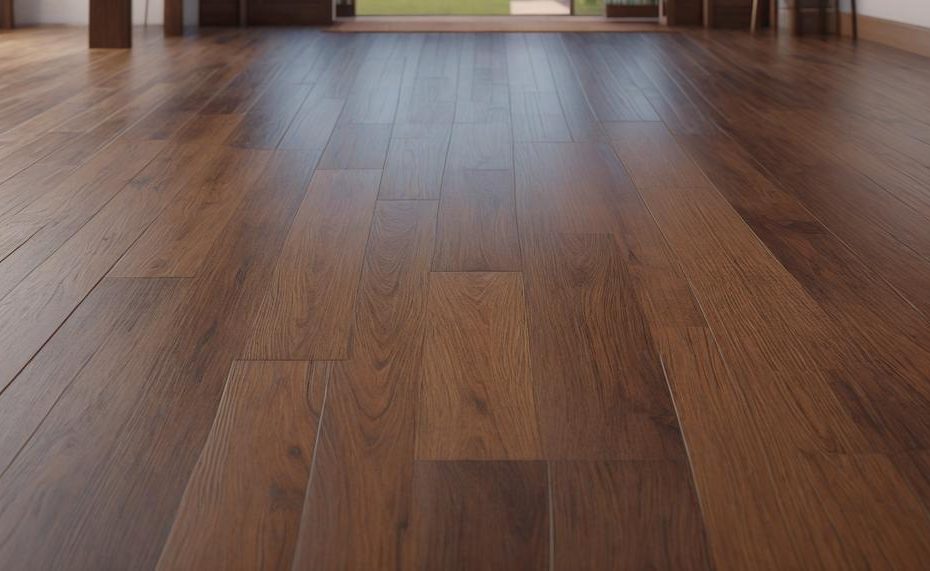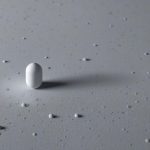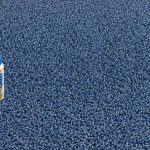Vinyl flooring has become a popular choice for homeowners and businesses alike due to its durability, affordability, and versatility. But when it comes to installation, you might wonder: can vinyl flooring be glued down? The answer is a resounding yes. Gluing down vinyl flooring is a common and effective installation method, offering several benefits and specific considerations.
Here’s what you need to know:
- Types of Vinyl Flooring: Not all vinyl flooring requires adhesive. While floating and interlocking floors are popular no-glue options, glue-down vinyl is ideal for certain situations.
- Cost-Effective: Glue-down vinyl flooring can be cheaper than other types as it doesn’t require additional padding or complex installation systems.
- Stability and Noise Reduction: Gluing down vinyl can make your floor quieter and more stable, with less movement and noise underfoot.
- Types of Adhesive: There are different adhesives for vinyl flooring. Some are designed for glue-down installations, while others are for floating floors.
- Easy to Install, Challenging to Remove: While glue-down vinyl is straightforward to install on a clean, flat surface, it can be more challenging to remove compared to floating floors.
- Precision in Installation: This method provides a more secure fit, minimizing gaps and ensuring a smooth surface.
Gluing down your vinyl flooring can be a smart choice, particularly in high-traffic areas or places where stability and noise reduction are paramount. Whether you’re renovating your home or updating your office, understanding the ins and outs of glue-down vinyl flooring can help you make an informed decision.
Ready to learn more about the best installation practices and how to choose the right vinyl flooring for your space? Keep reading for an in-depth guide.
Table of Contents
Does Vinyl Flooring Need to be Glued?
Vinyl flooring doesn’t always need glue, but it depends on the type.
| Type of Vinyl Flooring | Glue Required? | Details |
| Sheet Vinyl Flooring | Yes | Glue is essential to keep the sheet vinyl firmly attached, preventing moisture and providing a sound-absorbing cushion. This method ensures stability and a seamless finish. |
| Floating Vinyl Flooring | No | Floating vinyl planks or tiles interlock and rest atop the subfloor without adhesive. This option is easier to install and remove, making it popular for DIY projects. |
| Glue-Down Vinyl Planks | Yes | Requires adhesive to secure each plank, offering enhanced stability and reducing movement over time. Ideal for high-traffic areas due to its durability. |
Hard Set for Vinyl Flooring
The purpose of using a hard set adhesive for vinyl flooring is to ensure a strong, permanent bond that enhances the floor’s stability and durability. Hard set adhesives, typically acrylic-based, are designed to provide superior adhesion, making them ideal for areas with heavy foot traffic. These adhesives are moisture-resistant, preventing the vinyl from lifting or warping in damp conditions.
Compared to other types of adhesives, hard set adhesives stand out due to their robust bonding capabilities. Here’s a comparison of hard set adhesive with other common types of adhesives:
| Adhesive Type | Properties | Applications |
|---|---|---|
| Hard Set Adhesive | Strong bond, moisture-resistant, durable | Heavy traffic areas, commercial spaces |
| Pressure-Sensitive Adhesive | Allows repositioning, easy removal | Residential areas, temporary installations |
| Adhesive Spray | Convenient, less durable | Small-scale installations, DIY projects |
| Trowel-On Adhesive | High bond strength, labor-intensive application | Large areas, professional installations |
For instance, pressure-sensitive adhesives are preferred for installations where future removal or adjustments might be needed, while adhesive sprays are useful for quick, small-scale projects but lack the durability required for high-traffic areas. Trowel-on adhesives, though providing excellent bond strength, demand more effort during application, making them suitable for larger, professional jobs.
In essence, hard set adhesives are the go-to choice for ensuring a secure, long-lasting vinyl flooring installation in demanding environments. They provide the strength and resilience needed to maintain the integrity of the flooring under heavy use.
Pressure Sensitive
Pressure-sensitive adhesive (PSA) is a type of adhesive that forms a bond when pressure is applied to marry the adhesive with the adherend. Unlike other adhesives that require heat, water, or a solvent to activate, PSA sticks upon mere contact. This unique characteristic makes it an ideal choice for vinyl flooring installations.
How Pressure-Sensitive Adhesives Work for Vinyl Flooring Installation
Pressure-sensitive adhesives work by leveraging their tackiness to provide an immediate bond once the vinyl flooring is pressed into place. Here’s a detailed breakdown of how they function:
| Feature | Description | Benefit |
| Instant Bonding | The adhesive bonds instantly upon contact with the vinyl flooring material. | Prevents shifting and ensures precise placement. |
| Extended Open Time | Allows more time to adjust the flooring pieces before the adhesive fully sets. | Facilitates easier and more flexible installation, especially in larger areas. |
| Moisture Resistance | Designed to withstand exposure to moisture. | Ideal for use in bathrooms, kitchens, and other wet areas. |
| Temperature Tolerance | Maintains bond strength in varying temperatures. | Suitable for environments with fluctuating temperatures, ensuring durability. |
| Hybrid Adhesives | Combines PSA properties with other beneficial features like stronger bond strength or faster curing times. | Offers enhanced performance, meeting diverse installation needs. |
Practical Applications and Considerations
When installing vinyl flooring, pressure-sensitive adhesives are particularly beneficial due to their flexibility and reliability. Here’s why contractors often prefer PSAs:
- Ease of Use: Simply peel off the protective backing and press the vinyl tile or plank into place. There’s no need for additional tools or activation methods.
- Fast Installation: With instant bonding, the installation process is quicker, reducing labour time and cost.
- Reduced Risk of Errors: The extended open time allows for adjustments, making it easier to achieve a perfect fit.
How Does a Floating/Interlocking Vinyl Floor Compare to Glued Down Flooring?

Floating/interlocking vinyl flooring and glued down vinyl flooring each have distinct features that cater to different needs and preferences. Here’s a detailed comparison to help you understand their main differences:
| Feature | Floating/Interlocking Vinyl Floor | Glued Down Vinyl Floor |
| Installation | Easy to install with planks that click together. No adhesive is needed, making it a suitable choice for DIY enthusiasts. | Requires adhesive to bond the planks to the subfloor. Best installed by professionals due to the precise nature of the work. |
| Stability | Can feel slightly less stable due to its floating nature. Suitable for areas with low to medium foot traffic. | Offers a stable and solid feel underfoot as it is directly glued to the subfloor, making it ideal for high-traffic areas. |
| Subfloor Preparation | More forgiving with minor imperfections in the subfloor. Slight unevenness is less noticeable. | Requires a smooth and even subfloor for proper adhesion and best performance. |
| Repair and Replacement | Damaged planks can be tricky to replace without disrupting adjacent planks. Generally requires partial dismantling of the floor. | Individual planks can be replaced easily without affecting the surrounding floor, simplifying repairs. |
| Moisture Resistance | Floating floors are generally more moisture-resistant as they can expand and contract. However, water can seep underneath if not sealed properly. | Better suited for areas prone to moisture as the adhesive provides a barrier, though still susceptible if the adhesive fails. |
| Cost | Generally more cost-effective and quicker to install. Minimal tools and materials needed. | Higher installation costs due to the need for adhesive and professional installation, but may save on long-term maintenance. |
Do You Put Anything Down Under Vinyl Flooring?
Yes, you do put materials down under vinyl flooring to ensure proper installation and longevity. Here are some of the key materials:
| Material | Purpose | Benefits |
| Foam | Extra cushioning | Provides additional comfort underfoot, reduces noise |
| Felt | Sound control and insulation | Minimizes sound transmission, insulates against cold |
| Cork | Noise reduction | Excellent for soundproofing, eco-friendly option |
| Particle board | Stable base | Offers a flat, stable surface for vinyl planks |
| Moisture barrier (e.g., polyethylene) | Moisture protection | Prevents moisture from seeping through, protecting the flooring |
Is Glue-down Vinyl Flooring Better than Click?
The main differences between glue-down vinyl flooring and click vinyl flooring lie in their installation methods, stability, and suitability for various environments.
| Aspect | Glue-Down Vinyl Flooring | Click Vinyl Flooring |
| Installation | Directly glued to the subfloor, requires adhesive | Uses a locking mechanism, no adhesive needed |
| Stability | More stable and solid feel underfoot | May have slight movement if not installed properly |
| Difficulty | More challenging to install, often requires professional help | Easier to install, suitable for DIY projects |
| Traffic Suitability | Better for heavy traffic areas and commercial use | Ideal for residential use, moderate traffic areas |
| Subfloor | Suitable for uneven subfloors that can’t be leveled | Requires a smooth, level subfloor |
So, which one is considered to be better? It depends on your needs. If you require a durable solution for high-traffic areas or have an uneven subfloor, glue-down vinyl might be the superior choice. For DIY enthusiasts or those looking for an easier installation process, click vinyl flooring offers convenience and adequate performance for most residential spaces.
Conclusion
Vinyl flooring offers a versatile and cost-effective solution for various spaces, and gluing it down is a particularly beneficial installation method. Gluing down vinyl flooring ensures enhanced stability and noise reduction, making it ideal for high-traffic areas. This method requires different types of adhesives, including hard set, pressure-sensitive, and trowel-on, each tailored for specific applications and conditions.
Choosing to glue down vinyl flooring can significantly improve the longevity and durability of the floor, especially in commercial spaces or rooms exposed to moisture. While floating or interlocking vinyl floors provide easy installation and removal, glued-down floors offer a more secure and seamless finish, preventing any movement or gaps over time.
Ultimately, whether you opt for sheet vinyl or vinyl planks, using adhesive provides a firm and lasting bond that enhances the overall performance and appearance of the floor.






